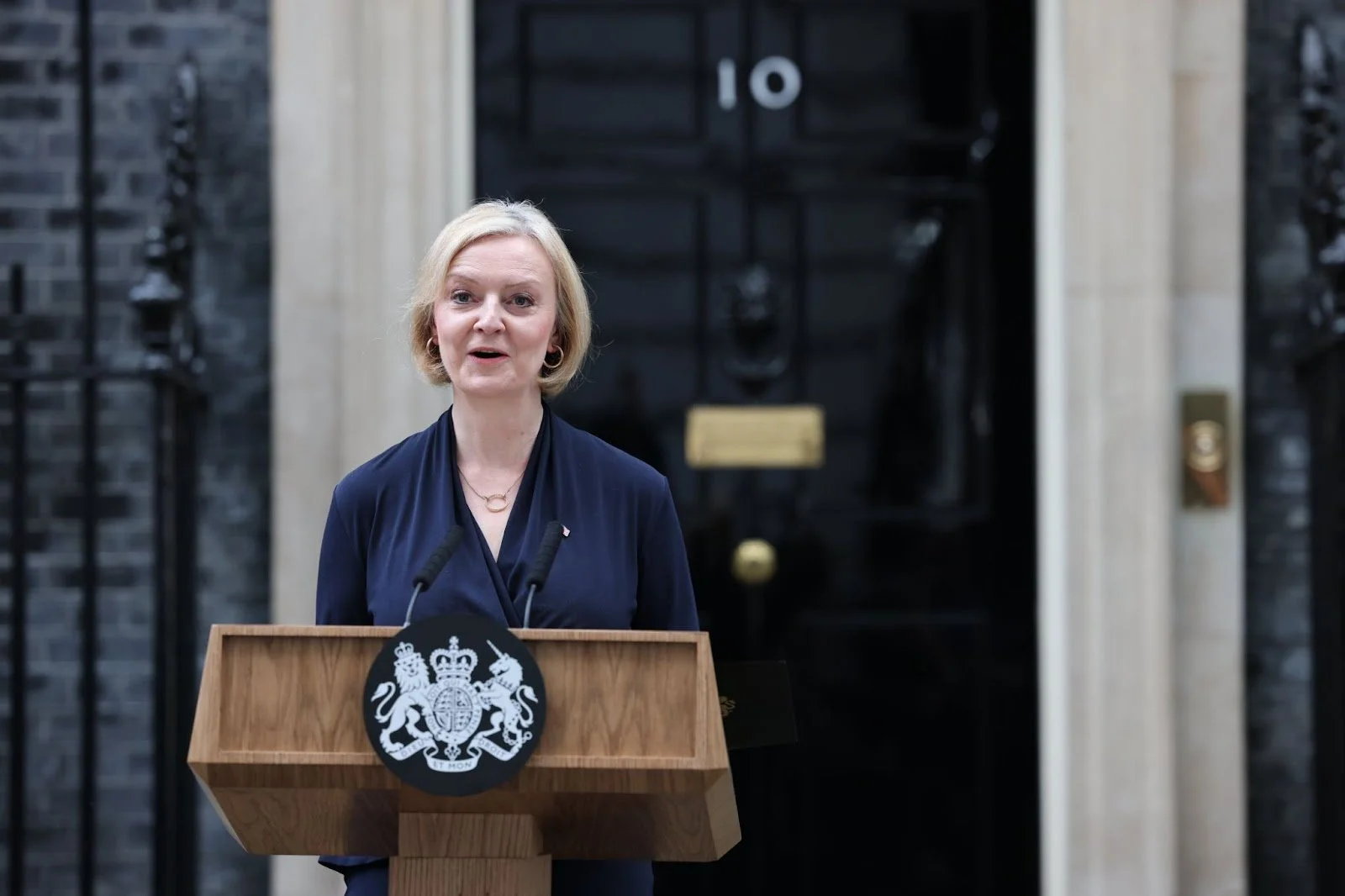Liz Truss Resigns as British Prime Minister
Liz Truss outside of 10 Downing Street, resigning as Prime Minister. Photo: NBC News
Liz Truss of the Conservative Party stepped down as British Prime Minister. She made the announcement outside 10 Downing Street on October 20th.
After only 44 days in office, she is the shortest-serving prime minister in England’s history.
Her resignation came among calls for her removal following the announcement of her financial plan, which significantly dropped the value of the British pound and raised concerns about an even greater increase in the cost of living.
“And we set out a vision for a low-tax, high-growth economy that would take advantage of the freedoms of Brexit…given the situation, I cannot deliver the mandates on which I was elected by the Conservative Party. I have therefore spoken to His Majesty the King to notify him that I am resigning,” stated Truss in her resignation annoucement.
The Growth Plan announced by Kwasi Kwarteng, Truss’ Chancellor of the Exchequer on September 23 sent shock waves throughout the British economy. It provided tax cuts for the wealthiest by limiting the highest rate of income tax to 40%.
Kwarteng also announced a tax cut for the basic rate of income tax–to be put into effect in April 2023.
The Truss Government viewed these tax cuts as the solution to the growing cost of living exacerbated by Russia’s war in Ukraine.
However, this economic plan proved to be a failure and doomed Truss and her government. The economy faltered following this announcement, with the British pound dropping by 22% in a matter of days.
Chancellor Kwasi Kwarteng walking with the Growth Plan. Photo: Bloomberg
A tax cut lessens the amount of money being taken out of people’s paychecks, meaning that they have more to spend–something much needed, in theory, as the cost of living increases.
While this plan may have allowed many to retain more of their money, it also means that certain governmental programs, such as the National Health Service, would have faced an increasingly dire financial situation.
Because of this, many of these national programs would have been forced to borrow more money, which is extremely expensive right now due to rising interest rates meant to slow down inflation.
As such, the British government began to lose money faster than it was able to replace it, forcing the Bank of England to step in.
“The Bank will carry out temporary purchases of long-dated UK government bonds from 28 September. The purpose of these purchases will be to restore orderly market conditions,” said Andrew Bailey, Governor of the Bank of England.
Following this humiliating development, three of Truss’ officials were either fired or quit in a period of two weeks, including Chancellor Kwarteng.
Truss’ favorability fell to -70, and many, including those in her own party, started talking about her replacement.
Following her resignation, many have called for a general election, which can be called at any time by the sitting government. The last general election was held back in December 2019.
The Conservative Party has begun the process of electing their new leader, who will become the next prime minister.


